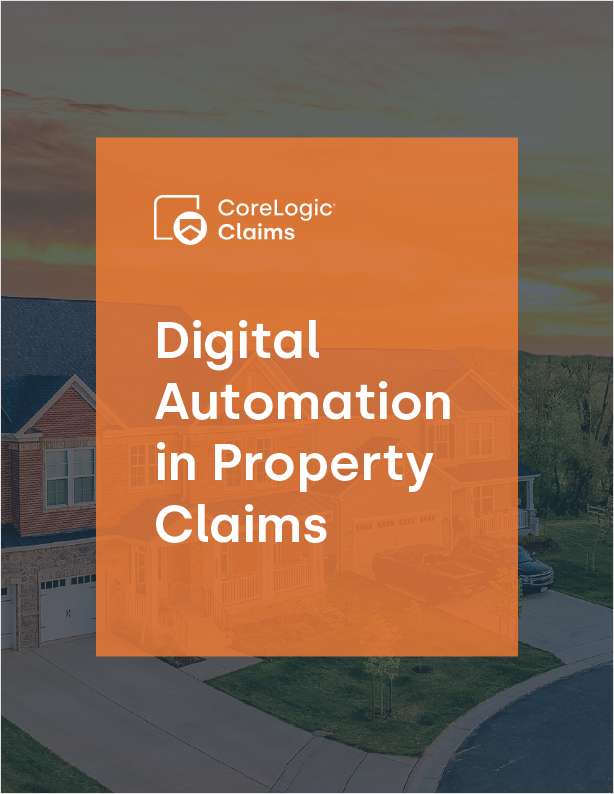Restart Retirement Option for Connecticut's Small Business Employees
An important public policy goal for the post-virus recovery program should be the effective implementation of a workplace-based retirement option for the hundreds of thousands of Connecticut workers employed by small businesses that do not offer any retirement plan to their employees.
May 01, 2020 at 11:33 AM
5 minute read
 Even as Connecticut continues to implement public health measures to "flatten the Covid-19 curve" and to safeguard private sector jobs, it is by no means premature to give attention to strengthening programs for economic recovery and family income security in the post-virus period.
Even as Connecticut continues to implement public health measures to "flatten the Covid-19 curve" and to safeguard private sector jobs, it is by no means premature to give attention to strengthening programs for economic recovery and family income security in the post-virus period.
One of the key problems of economic inequality in the United States is that many hard-working Americans retire with little or no financial savings other than Social Security and therefore are often unable to meet their minimum household needs.
According to data cited by The Economist, as much as 40 percent of working age Americans have no retirement-account savings, causing America's rate of old-age poverty to be among the highest in the developed world. Reviewing economic trends for the past decade, The New York Times, citing Federal Reserve data, reported that "retirement wealth has accumulated almost exclusively among higher-income households, while middle- and lower-income households have only held steady or lost ground."
The daunting prospects of exploding unemployment and recession caused by the virus will only compound this dire situation.
An important public policy goal for the post-virus recovery program should be the effective implementation of a workplace-based retirement option for the hundreds of thousands of Connecticut workers employed by small businesses that do not offer any retirement plan to their employees. There were an estimated 600,000 such workers in Connecticut prior to the current health calamity. It is not unreasonable to expect that number will grow substantially in the coming months as surviving small businesses attempt to shed costs and new start-ups use more austere business plans.
Although the financial services industry could have established comprehensive small business options, the private market did not do so. As a result, several states adopted a "public option" pension enabling employees of small businesses to join payroll-deduction retirement savings plans that create traditional IRA and/or Roth IRA investments for employees that are managed by public agencies acting as trustees of the funds.
Oregon launched the OregonSaves program in 2017 for its 800,000 private-sector workers with no workplace-based retirement savings plan. California's CalSavers opened in 2019, and Illinois and Maryland have established similar programs.
Connecticut took an important first step when it established the Connecticut Retirement Security Program in 2016, a pension program for private-sector employees. A small business with five or more employees that does not offer its own retirement plan will enroll its employees in the program unless they voluntarily "opt out" and choose not to participate. The program's payroll deduction plan deposits the employee's funds in a Roth IRA plan with no financial participation by the employer and the funds are invested by a professional financial services firm.
Unfortunately, the program and the quasi-independent Authority [CRSA] set up to manage it, were plagued with problems from the start, but the prospects for a reset seem more favorable now than in the recent past, for the following reasons:
First, the threat of opponents of state programs deploying the federal Employee Retirement Income Security Act (ERISA) to preempt the state option has been greatly diminished by the March decision of the U.S. District Court for the Eastern District of California. The court dismissed for the second time the federal preemption claim brought by the conservative Howard Jarvis Taxpayers Association, on the grounds that "CalSavers is neither an employee benefit plan nor does it relate to an ERISA plan." Opponents of the Connecticut program had cited the Jarvis case as a reason to shut it down because it is a close cousin of CalSavers.
Second, Gov. Ned Lamont, in his February 2020 budget, called for several administrative and budgetary reforms to revive the retirement project. The governor proposed that the CRSA would be transferred to state Comptroller Kevin Lembo's office, that Lembo would be appointed chairman of the authority, and that a small amount of appropriated funds would be made available for administrative and personnel costs. The concept of Connecticut joining an already-established program in Oregon or elsewhere has also been suggested.
"This is sort of a restart. It will give people the opportunity, at a much lower cost, to give people the retirement security they deserve," Lamont was quoted as saying last month in a welcome expression of support.
Third, the goal of increasing post-employment savings was given a federal boost in December when Congress passed "The Setting Every Community Up for Retirement Enhancement Act of 2019" [the "SECURE Act"] that reformed federal treatment of pension tools. Most important are the provisions that make it easier for small businesses to join together through Chambers of Commerce and trade associations to offer retirement plans to their employees and tax credits to firms that establish automatic enrollment programs for their employees.
If these reforms are successful, the current unmet need for employment-based retirement options will be reduced and the state-based IRA plans of Connecticut and other states will be able to mobilize their resources more efficiently to enroll employees who are still not covered.
Acknowledging that these are just the highlights of a still-evolving complex public undertaking, we endorse the goal of "resetting" the CRSA and urge support for the reform efforts. Addressing better the post-retirement financial needs of families is an essential component of Connecticut's future economic vitality.
This content has been archived. It is available through our partners, LexisNexis® and Bloomberg Law.
To view this content, please continue to their sites.
Not a Lexis Subscriber?
Subscribe Now
Not a Bloomberg Law Subscriber?
Subscribe Now
NOT FOR REPRINT
© 2025 ALM Global, LLC, All Rights Reserved. Request academic re-use from www.copyright.com. All other uses, submit a request to [email protected]. For more information visit Asset & Logo Licensing.
You Might Like
View All
ADVANCE Act Offers Conn. Opportunity to Enhance Carbon-Free Energy and Improve Reliability With Advanced Nuclear Technologies

Trending Stories
- 1States Accuse Trump of Thwarting Court's Funding Restoration Order
- 2Microsoft Becomes Latest Tech Company to Face Claims of Stealing Marketing Commissions From Influencers
- 3Coral Gables Attorney Busted for Stalking Lawyer
- 4Trump's DOJ Delays Releasing Jan. 6 FBI Agents List Under Consent Order
- 5Securities Report Says That 2024 Settlements Passed a Total of $5.2B
Who Got The Work
J. Brugh Lower of Gibbons has entered an appearance for industrial equipment supplier Devco Corporation in a pending trademark infringement lawsuit. The suit, accusing the defendant of selling knock-off Graco products, was filed Dec. 18 in New Jersey District Court by Rivkin Radler on behalf of Graco Inc. and Graco Minnesota. The case, assigned to U.S. District Judge Zahid N. Quraishi, is 3:24-cv-11294, Graco Inc. et al v. Devco Corporation.
Who Got The Work
Rebecca Maller-Stein and Kent A. Yalowitz of Arnold & Porter Kaye Scholer have entered their appearances for Hanaco Venture Capital and its executives, Lior Prosor and David Frankel, in a pending securities lawsuit. The action, filed on Dec. 24 in New York Southern District Court by Zell, Aron & Co. on behalf of Goldeneye Advisors, accuses the defendants of negligently and fraudulently managing the plaintiff's $1 million investment. The case, assigned to U.S. District Judge Vernon S. Broderick, is 1:24-cv-09918, Goldeneye Advisors, LLC v. Hanaco Venture Capital, Ltd. et al.
Who Got The Work
Attorneys from A&O Shearman has stepped in as defense counsel for Toronto-Dominion Bank and other defendants in a pending securities class action. The suit, filed Dec. 11 in New York Southern District Court by Bleichmar Fonti & Auld, accuses the defendants of concealing the bank's 'pervasive' deficiencies in regards to its compliance with the Bank Secrecy Act and the quality of its anti-money laundering controls. The case, assigned to U.S. District Judge Arun Subramanian, is 1:24-cv-09445, Gonzalez v. The Toronto-Dominion Bank et al.
Who Got The Work
Crown Castle International, a Pennsylvania company providing shared communications infrastructure, has turned to Luke D. Wolf of Gordon Rees Scully Mansukhani to fend off a pending breach-of-contract lawsuit. The court action, filed Nov. 25 in Michigan Eastern District Court by Hooper Hathaway PC on behalf of The Town Residences LLC, accuses Crown Castle of failing to transfer approximately $30,000 in utility payments from T-Mobile in breach of a roof-top lease and assignment agreement. The case, assigned to U.S. District Judge Susan K. Declercq, is 2:24-cv-13131, The Town Residences LLC v. T-Mobile US, Inc. et al.
Who Got The Work
Wilfred P. Coronato and Daniel M. Schwartz of McCarter & English have stepped in as defense counsel to Electrolux Home Products Inc. in a pending product liability lawsuit. The court action, filed Nov. 26 in New York Eastern District Court by Poulos Lopiccolo PC and Nagel Rice LLP on behalf of David Stern, alleges that the defendant's refrigerators’ drawers and shelving repeatedly break and fall apart within months after purchase. The case, assigned to U.S. District Judge Joan M. Azrack, is 2:24-cv-08204, Stern v. Electrolux Home Products, Inc.
Featured Firms
Law Offices of Gary Martin Hays & Associates, P.C.
(470) 294-1674
Law Offices of Mark E. Salomone
(857) 444-6468
Smith & Hassler
(713) 739-1250












